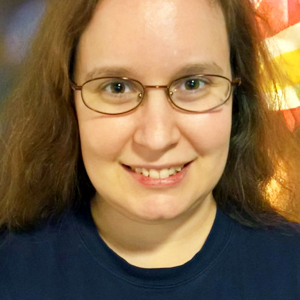The second edition of #GAconf was held on 19th March 2018 at the Children’s Creativity Museum, San Francisco.
ALL PREVIOUS CONFERENCES
The pace of change in the games industry continues to accelerate. Progress at all levels of the industry, including significant firsts. Innovation at platform and software level, even greater support from prominent figures in the industry, initiatives, processes, and of course new and future legislative impact.
This session will share highlights of these, from Xbox co-pilot mode to the Unity text to speech plugin, from Karen Stevens to Kim Kardashian, from player panels to bootcamps, from Mario Kart to Neir Automata.

The 2st Century Communications and Video Accessibility Act (CVAA) requires advanced communications services (ACS) and the equipment used for these services to be accessible to and usable by people with disabilities. Over the past several years, the Federal Communications Commission has granted various waivers from this requirement for gaming devices and services, finding that these offerings were capable of accessing ACS, but designed primarily for purposes other than using ACS — namely enabling game play, game distribution, and playing games. The last of these waivers, which only applies to video game software, is set to expire at the end of this year. This presentation will explore the functional requirements for access, recordkeeping obligations, and the FCC’s complaint resolution process for the ACS components of video games.

A time tunnel through key and curious elements of game accessibility history.
Enabled gamers through the ages. Weird and wonderful assistive technology. Good things from the past that still hold lessons for game development today.
This talk is a branch of the (very slow) One Switch 100 book project.

Ok, now that I have your attention, here’s what’s in it for you:
In this talk you’ll learn a few simple tricks and tips to make your game’s accessibility shine.
Adding accessibility markup to your UI is a great first step, but it’s not enough to make the gaming experience smooth for blind players. This talk demonstrates lessons learned from making several games originally intended for a sighted audience accessible to the blind.

Cognitive accessibility is one of the elements the Immersive Tools team at the Berklee Institute for Arts Education and Special Needs considered while designing and implementing XR games and experiences to help people on the autism spectrum with their music lessons. The project focused on the Institutes’ groundbreaking Saturday private lessons for people on the spectrum in the greater Boston area in a range of ages. The design choices we made about whether to develop tools/games (and which tools) for VR or AR, and on what platform were informed by cognitive accessibility how we consider and deploy attention, executive function, musical and physical world knowledge, perception, eye gaze, fine and gross motor skills, and reasoning in the Immersive Tools Project.

Jason discusses how Household Games worked with the community by reaching out to, and collaborating with, players, advocates and experts to give the development team the guidance and perspectives they needed to ensure that Way of the Passive Fist was as inclusive as possible. Jason will show how a very small independent development team can create an experience that is accessible and fun on a limited budget and with limited resources. This presentation will show that accessibility features are achievable and worthwhile and improve the experience of both players and developers.

In our presentation, we discuss a philosophy of changing the perception of accessibility from a list of clinical principles to a more manageable list of feature recommendations. While undeniable as positive goals some accessibility principles can appear very hard to take on. This approach seeks to empower dev teams who are struggling to adopt accessibility principles, which may appear to be daunting in scope or unmanageable within design expectations. Along the way, we also discuss updated design principles, share insights into our current methodology, and share best practices for working with development team members.

EA SPORTS Accessibility Lead Karen Stevens describes how she created a company initiative to better support gamers with disabilities, from the ground-up. Topics include how to use social media to build up a business case, creating feature pitches, determining your player’s needs, and more.

Live streaming has been growing for years and has become huge part of the video game industry. But what does streaming mean for gamers with disabilities? In this session, Tara will discuss live streaming and it’s impact for viewers and streamers with disabilities, provide an introduction to Twitch Extensions and Mixer Interactive, and tell you how you can leverage this new tool set to bring forth a new level of inclusion in your title or build accessibility tools for a whole new audience.

Games have come a long way since the days of Pong and this is true for accessibility in gaming as well. Initially, emerging technologies often leave people with needs behind only to change later. Join Kelsey, Michael, and Chris as they discuss their experiences with current issues as Deaf gamers. They will cover the history of subtitle support in games, how much more we have left to do, as well as common communication difficulties playing with other players, and how this overlaps with being a streamer or viewer as a Deaf person.

An exploration of the current state of mainstream gaming without sight and what developers can do to improve experiences in current and future titles, based on a lifetime of blind gaming and a five week journey across the USA visiting a wide range of studios. As well as looking at the current situation for consumers in terms of accessibility of available consoles, the session will also delve into the range of complex AAA mechanics that without fundamental changes could be an enjoyable experience for gamers without sight.

Cherry’s heartfelt confession of adoration to the hobby that provides community, adventure and challenge. The future of which they see as both inclusive and accessible.
Let’s talk about how we can move accessibility forward while accounting for diverse and complex disabilities like Cherry’s. What happens when games get it wrong? But more importantly what happens when they get it right?